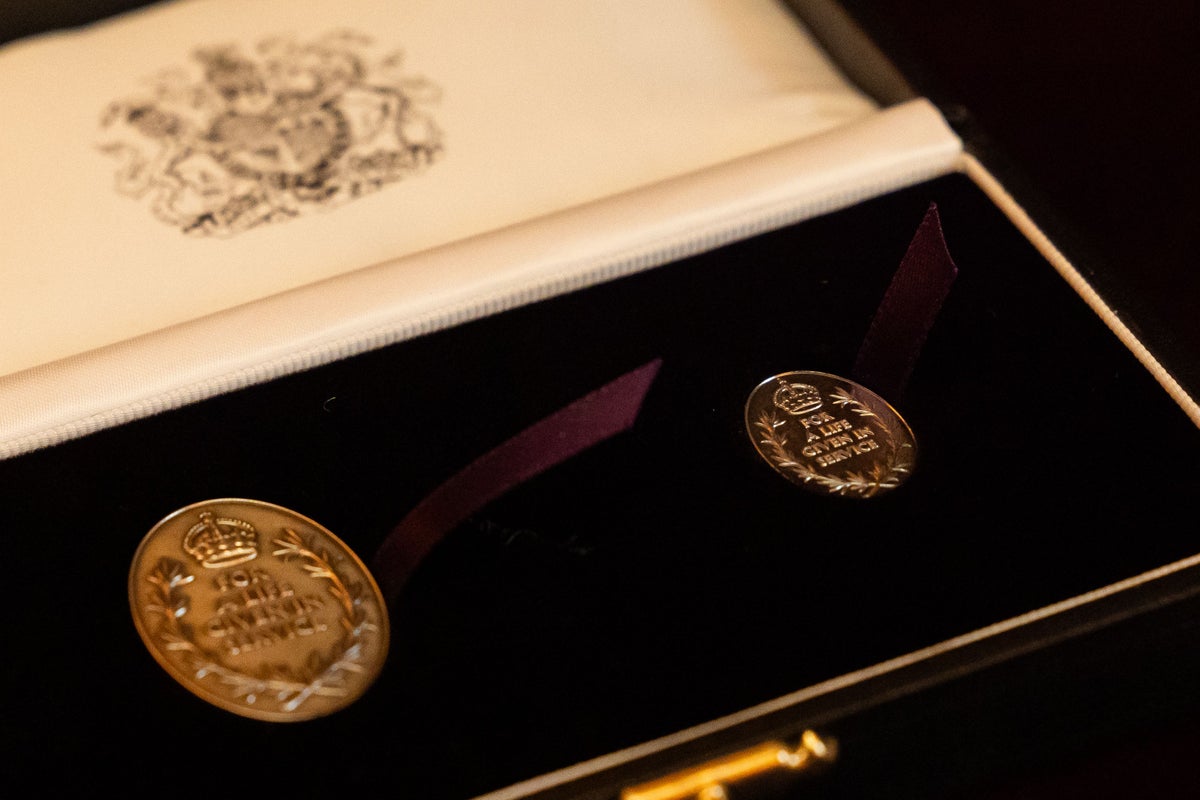
More than 100 public servants who died in service have been recognised by the awarding of an Elizabeth Emblem.
The award is the civilian equivalent of the Elizabeth Cross, which recognises members of the UK Armed Forces who died in action or as a result of a terrorist attack.
In the second list of Elizabeth Emblem recipients, some 106 police officers, firefighters, overseas workers and other public servants who died in service were recognised, with the award given to their next of kin.
Among the recipients is Metropolitan Police Constable Nina Mackay, who died aged 25 after being stabbed by a violent and mentally unstable man while searching a property in Stratford, East London in October 1997.
Her mother, Patricia Mackay, 80, said Nina had a “great social conscience”, adding “everybody liked working with her because she was very hard working”.
She told the PA news agency: “The Metropolitan Police have awarded her many accolades, and the commissioner at the time, just after she was killed, recommended her for the George Medal, which was turned down.
“So after all these years, there’s actually something tactile that I can hold.”
Discussing the memorials to her daughter, Ms Mackay, who lives in Nairn, Scotland, said: “She’s got the Targa Boat on the Thames that’s named after her, and that will be ongoing forever. The street where it happened was changed to Nina Mackay Close.
“There’s been so much that I’m very grateful for, but this will actually be something tactile that I could hold to remind me what a brave young woman she was.”
Another recipient was school teacher Gwen Mayor, 45, who was killed in 1996 while protecting her pupils at Dunblane Primary School, Scotland, during a mass shooting.
In a statement provided by her husband, Rodney Mayor, who now lives in Cyprus, the Mayor family said they were “extremely proud and honoured to be receiving this award on behalf of Gwen”.
They added: “We always believed her actions that day deserved more recognition.
“You would have to have known Gwen to know that she would have done whatever trying to protect the children in her care. She paid the ultimate price for that commitment.
“Finally, we now feel that she has been honoured for what happened that day.”
Chancellor of the Duchy of Lancaster Pat McFadden said: “We owe an enduring debt to the public servants who give their lives to protect others.
“The Elizabeth Emblem is a reminder not just of the ultimate price their loved ones have paid in service of our communities, it is a lasting symbol of our national gratitude for their incredible sacrifice.”
Firefighter John Liptrott, who died in 1968 while attempting to rescue three children who had entered a disused mineshaft, was also awarded the Emblem.
Another recipient was Police Constable Dennis Cowell, who died in the River Thames in 1965 after a police launch capsized following a collision between three boats.
Six people who contracted Covid-19 while working in healthcare were recognised in the list.
These included Dr Poornima Nair Balupuri, a GP living in Bishop Auckland, Co Durham, who died in 2020 doing frontline work.
Some 33 people on the list were police officers and firefighters based in Northern Ireland, including Constable Cyril Wilson, who was shot by the IRA in an ambush in 1974.
Reserve Constable Robert Struthers, who died in 1978 while serving in the Royal Ulster Constabulary, was also awarded the Emblem – he was shot by two members of the Provisional IRA while working in his office.
The design of the Elizabeth Emblem incorporates a rosemary wreath, a traditional symbol of remembrance, which surrounds the Tudor Crown.
It is inscribed with “For A Life Given In Service” and will have the name of the person for whom it is in memoriam inscribed on the reverse of the Emblem.
The Emblem will also include a pin to allow the award to be worn on clothing by the next of kin of the deceased.
Families and next of kin of those who have died in public service are able to apply for an Elizabeth Emblem by making an application to the Cabinet Office.
The Elizabeth Emblem is awarded to the next of kin of a person who was employed in a role based on the source of a commission on behalf of, or formally funded by, an eligibility body.
An eligible body is defined as the UK Government, the Scottish Government, the Welsh Government, the Northern Ireland Executive, local government, a Crown Dependency or a British Overseas Territory.
The award of the Elizabeth Emblem is retrospective to 1948 and mirrors the eligibility criteria for the Elizabeth Cross.
